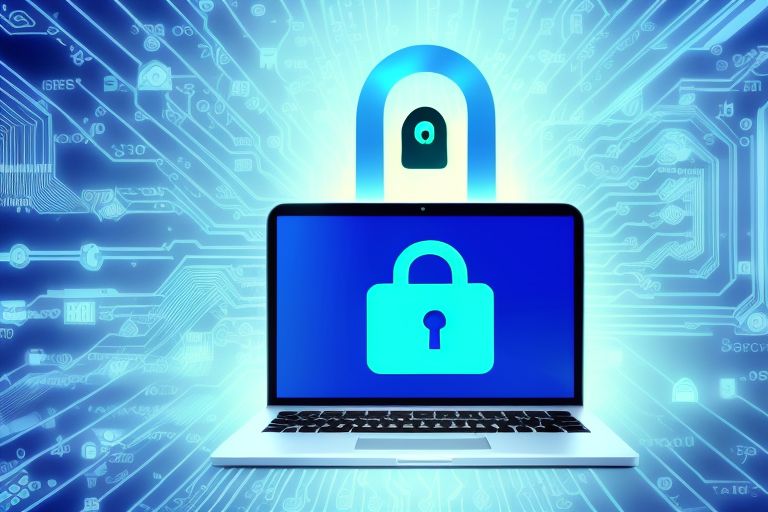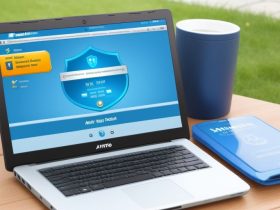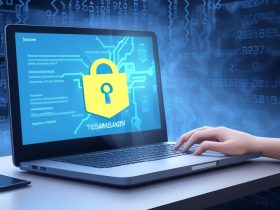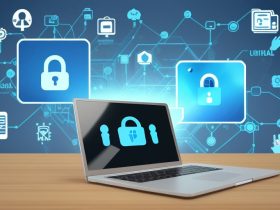In today’s digital age, online security is no longer optional—it’s a necessity. With cyber threats on the rise, protecting your personal information, financial data, and online presence has never been more critical. Did you know that a cyberattack occurs every 39 seconds? This alarming statistic underscores the importance of adopting robust online security practices to safeguard yourself from potential risks.
Whether you’re browsing social media, shopping online, or managing your business, understanding how to stay secure in the digital world is essential. In this article, we’ll explore practical and effective online security tips that can help you navigate the internet safely and confidently.
Why Online Security Matters
The internet is a powerful tool that connects us to endless opportunities, but it also comes with risks. Cybercriminals are constantly evolving their tactics, targeting individuals and organizations alike. From phishing scams to malware attacks, the threats are diverse and ever-present. By prioritizing online security, you can protect your sensitive information, prevent identity theft, and avoid financial losses.
Common Online Security Threats
Before diving into the tips, it’s important to understand the common threats you may encounter:
- Phishing: Fraudulent attempts to steal sensitive information through fake emails or websites.
- Malware: Malicious software designed to damage or gain unauthorized access to your devices.
- Ransomware: A type of malware that locks your files until a ransom is paid.
- Identity Theft: The unauthorized use of your personal information for fraudulent purposes.
- Weak Passwords: Easily guessable passwords that make your accounts vulnerable to hacking.
Top Online Security Tips to Protect Yourself
Now that you’re aware of the risks, let’s explore actionable steps you can take to enhance your online security.
1. Use Strong, Unique Passwords
One of the simplest yet most effective ways to secure your accounts is by using strong, unique passwords. Avoid common phrases or easily guessable information like your birthdate or “123456.” Instead, create passwords that include a mix of uppercase and lowercase letters, numbers, and special characters.
Consider using a password manager to generate and store complex passwords securely. This tool can also help you avoid the temptation of reusing passwords across multiple accounts, which is a common security pitfall.
2. Enable Two-Factor Authentication (2FA)
Two-factor authentication adds an extra layer of security to your accounts by requiring a second form of verification in addition to your password. This could be a code sent to your phone, a fingerprint scan, or a facial recognition check. Even if a hacker manages to steal your password, they won’t be able to access your account without the second factor.
3. Keep Your Software Updated
Outdated software is a goldmine for cybercriminals. Developers regularly release updates to patch vulnerabilities and improve security. Make it a habit to update your operating system, apps, and antivirus software as soon as new versions are available. Enabling automatic updates can save you time and ensure you’re always protected.
4. Be Cautious of Phishing Scams
Phishing scams often disguise themselves as legitimate emails or messages from trusted sources. They may ask you to click on a link, download an attachment, or provide sensitive information. Always verify the sender’s email address and look for red flags like spelling errors or urgent requests. When in doubt, contact the organization directly to confirm the message’s authenticity.
5. Secure Your Wi-Fi Network
Your home Wi-Fi network can be a gateway for cyberattacks if not properly secured. Change the default username and password for your router, and use a strong encryption method like WPA3. Additionally, consider hiding your network name (SSID) and enabling a firewall to block unauthorized access.
6. Use a Virtual Private Network (VPN)
A VPN encrypts your internet connection, making it difficult for hackers to intercept your data. This is especially important when using public Wi-Fi networks, which are often unsecured. A reliable VPN can also mask your IP address, enhancing your privacy and anonymity online.
7. Regularly Back Up Your Data
Data loss can occur due to cyberattacks, hardware failures, or accidental deletions. Regularly backing up your data ensures that you can recover important files in case of an emergency. Use an external hard drive or a cloud-based service for secure storage, and schedule automatic backups for convenience.
8. Monitor Your Accounts for Suspicious Activity
Keep a close eye on your bank accounts, credit cards, and online profiles for any unusual activity. Early detection of unauthorized transactions or changes can help you take swift action to mitigate damage. Many financial institutions offer alerts for suspicious activity, so take advantage of these features.
9. Educate Yourself and Stay Informed
Cyber threats are constantly evolving, so staying informed is key to protecting yourself. Follow reputable cybersecurity blogs, attend webinars, and subscribe to newsletters to keep up with the latest trends and best practices. Educating yourself and your family about online security can also help create a safer digital environment for everyone.
10. Use Antivirus and Anti-Malware Software
Investing in reliable antivirus and anti-malware software is a must for any device connected to the internet. These tools can detect and remove malicious programs before they cause harm. Make sure to run regular scans and keep the software updated for optimal protection.
Real-World Examples of Online Security Breaches
To emphasize the importance of these tips, let’s look at some real-world examples of online security breaches:
- Equifax Data Breach (2017): Hackers exploited a vulnerability in Equifax’s system, exposing the personal information of 147 million people. This breach highlighted the need for robust security measures and timely software updates.
- Colonial Pipeline Ransomware Attack (2021): A ransomware attack forced the company to shut down its operations, causing widespread fuel shortages. The incident underscored the importance of strong passwords and regular data backups.
- Twitter Bitcoin Scam (2020): Hackers gained access to high-profile Twitter accounts and posted fraudulent Bitcoin requests. This incident demonstrated the risks of phishing and the value of two-factor authentication.
Conclusion
Online security is a shared responsibility that requires vigilance and proactive measures. By implementing the tips outlined in this article, you can significantly reduce your risk of falling victim to cyber threats. Remember, staying secure online isn’t just about protecting your data—it’s about safeguarding your peace of mind.
Take the time to assess your current security practices and make necessary improvements. Whether it’s updating your passwords, enabling two-factor authentication, or educating yourself about the latest threats, every step counts. In a world where cyberattacks are becoming increasingly sophisticated, being prepared is your best defense.












Leave a Reply